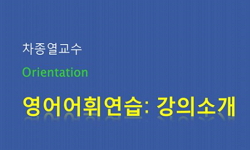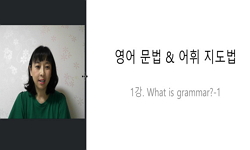Purpose : The existing literature has conflicting findings about the pre-literacy and language skills of children with speech sound disorders (SSD), which may be due to the heterogeniety within SSD. The purpose of the study was to examine whether or n...
http://chineseinput.net/에서 pinyin(병음)방식으로 중국어를 변환할 수 있습니다.
변환된 중국어를 복사하여 사용하시면 됩니다.
- 中文 을 입력하시려면 zhongwen을 입력하시고 space를누르시면됩니다.
- 北京 을 입력하시려면 beijing을 입력하시고 space를 누르시면 됩니다.

학령전기 말소리장애 아동의 음운인식능력에 따른 음운처리능력과 언어능력 = Phonological Processing and Language Skills in Preschool Children with Speech Sound Disorders According to Phonological Awareness Skills
한글로보기https://www.riss.kr/link?id=A105942271
- 저자
- 발행기관
- 학술지명
- 권호사항
-
발행연도
2018
-
작성언어
Korean
- 주제어
-
등재정보
KCI등재
-
자료형태
학술저널
- 발행기관 URL
-
수록면
69-77(9쪽)
-
KCI 피인용횟수
3
- DOI식별코드
- 제공처
-
0
상세조회 -
0
다운로드
부가정보
다국어 초록 (Multilingual Abstract)
Purpose : The existing literature has conflicting findings about the pre-literacy and language skills of children with speech sound disorders (SSD), which may be due to the heterogeniety within SSD. The purpose of the study was to examine whether or not the children with SSD with low phonological awareness (PA) are at greater risk for acquiring phonological processing skills (phonological memory and phonological retrieval) and language skills (expressive vocabulary and sentence repetition) than the chidlren with SSD with high PA. Methods : Eleven 56~75 month-old children with SSD (5 children with SSD-low PA and 6 children with SSD-high PA) and their sex- and age-matched typically-developing peers (TD) were participated. The performance in PA task, non-word repetition task (NWR), rapid automatic naming task (RAN) (alphanumeric and nonalphanumeric), sentence repetition task (SR) and REVT of children with SSD-low PA and SSD-high PA were compared to those of their typical peers. Results : Findings indicate that the SSD-low PA group performed more poorly on NWR, RAN-alphanumeric, and REVT-expressive than the TD group. The SSD-high PA group performed better on SR than other groups and showed the performance levels between SSD-low PA and TD groups on the other tasks, though not significant. Conclusions : The results of this study support the hypothesis that children with SSD-low PA may be more vulnerable to difficulties in phonological processing and language skills than children with SSD-high PA and TD children.
국문 초록 (Abstract)
목적 : 기존의 말소리장애 아동을 대상으로 한 연구들에서 이들의 음운처리능력과 언어능력에서일관적이지 않은 결과를 보인 이유는 학령전기 말소리장애 아동 집단의 이질성 때문일 수 있...
목적 : 기존의 말소리장애 아동을 대상으로 한 연구들에서 이들의 음운처리능력과 언어능력에서일관적이지 않은 결과를 보인 이유는 학령전기 말소리장애 아동 집단의 이질성 때문일 수 있다. 이에본 연구에서는 본 연구에서는 4~6세 학령전기 말소리장애 아동을 음운인식능력에 따라 두 집단으로나누어 이들의 음운처리능력(음운기억, 음운인출)과 언어능력(표현어휘, 문장 따라말하기)을 살펴보고자하였다. 방법: 56~75개월 사이의 말소리장애 아동 11명과 이들과 성별과 월령을 일치시킨 일반 아동11명이 본 연구에 참여했다. 다시 말소리장애 아동을 음운인식능력에 따라 나눈 후, 세 집단 간음운인식 과제, 비단어 따라말하기 과제, 빠른 이름대기 과제(비문자 조건, 문자 조건), REVT(수용, 표현), 문장 따라말하기 과제에서의 수행을 비교했다. 결과: 연구결과, 비단어 따라말하기 과제, 빠른이름대기 과제-문자 조건, REVT 표현어휘력에서 음운인식능력이 낮은 말소리장애 아동은 일반아동보다 유의미하게 낮은 수행을 보였다. 비록 유의미한 차이는 없었으나, 음운능력이 좋은 말소리장애아동의 경우 다른 과제들에서 음운능력이 낮은 말소리장애 아동 집단보다는 높고 또래 아동 집단보다는낮은 수행 경향성을 보였던 것과는 달리 문장 따라말하기 과제에서는 가장 우수한 수행 경향성을보였다. 결론 : 본 연구결과는 말소리장애 아동의 낮은 음운인식능력은 문해능력 결함의 위험요인이라는 것을 확인할 수 있었다. 본 연구는 학령전기 말소리장애 아동 집단의 이질성을 확인하고임상에서 이들의 음운처리능력 평가의 중요성을 확인한 예비 가이드라인을 제시했다는 데에 의의가있다.
참고문헌 (Reference)
1 권오식, "한글읽기 발달의 이론과 그 응용" 20 (20): 211-227, 2001
2 김영태, "한국아동 메타-화용언어검사(KOPLAC)의 개발: 타당도와 신뢰도 분석" 한국언어청각임상학회 23 (23): 94-108, 2018
3 민종현, "학령기 말소리장애 아동과 일반 아동의 음운인식 및 쓰기능력" 한국언어치료학회 24 (24): 225-236, 2015
4 강진경, "취학전 단순언어장애아동의 음운인식에 관한 연구" 한국언어청각임상학회 12 (12): 32-51, 2007
5 김영태, "우리말 조음·음운 평가" 학지사 2004
6 김영태, "아동언어처리능력선별검사(LAPST-C)" 파라다이스 2018
7 김영태, "수용·표현 어휘력검사(REVT)" 서울장애인종합복지관 2009
8 Schussler, K., "Working memory processes in children with and without persistent speech sound disorders" University of Nebraska-Lincoln 2012
9 Anthony, J. L., "What factors place children with speech sound disorders at risk for reading problems?" 20 (20): 146-160, 2011
10 Alan Baddeley, "The episodic buffer: a new component of working memory?" Elsevier BV 4 (4): 417-423, 2000
1 권오식, "한글읽기 발달의 이론과 그 응용" 20 (20): 211-227, 2001
2 김영태, "한국아동 메타-화용언어검사(KOPLAC)의 개발: 타당도와 신뢰도 분석" 한국언어청각임상학회 23 (23): 94-108, 2018
3 민종현, "학령기 말소리장애 아동과 일반 아동의 음운인식 및 쓰기능력" 한국언어치료학회 24 (24): 225-236, 2015
4 강진경, "취학전 단순언어장애아동의 음운인식에 관한 연구" 한국언어청각임상학회 12 (12): 32-51, 2007
5 김영태, "우리말 조음·음운 평가" 학지사 2004
6 김영태, "아동언어처리능력선별검사(LAPST-C)" 파라다이스 2018
7 김영태, "수용·표현 어휘력검사(REVT)" 서울장애인종합복지관 2009
8 Schussler, K., "Working memory processes in children with and without persistent speech sound disorders" University of Nebraska-Lincoln 2012
9 Anthony, J. L., "What factors place children with speech sound disorders at risk for reading problems?" 20 (20): 146-160, 2011
10 Alan Baddeley, "The episodic buffer: a new component of working memory?" Elsevier BV 4 (4): 417-423, 2000
11 Lawrence D. Shriberg, "The Speech Disorders Classification System (SDCS)" American Speech Language Hearing Association 40 (40): 723-, 1997
12 Jane Oakhill, "The Relation between Phonological Awareness and Working Memory" Elsevier BV 75 (75): 152-164, 2000
13 Judith G. Foy, "Speech production deficits in early readers: predictors of risk" Springer Nature 25 (25): 799-830, 2012
14 Scarborough, H. S., "Specific reading disability: A view of the spectrum" York Press 75-119, 1998
15 Marianne Klem, "Sentence repetition is a measure of children's language skills rather than working memory limitations" Wiley 18 (18): 146-154, 2015
16 Seeff-Gabriel, B., "Sentence imitation as a tool in identifying expressive morphosyntactic difficulties in children with severe speech difficulties" 45 (45): 691-702, 2010
17 Lewis, B. A., "Residual effects of preschool phonology disorders in grade school, adolescence, and adulthood" 35 (35): 819-831, 1992
18 Kamhi, A., "Reading disabilities and the speech-language pathologist" 14 : 101-118, 1986
19 Nicola Williams, "Processing deficits in children with phonological disorder and delay: A comparison of responses to a series of output tasks" Informa UK Limited 7 (7): 145-159, 2009
20 Nancy A. Raitano, "Pre-literacy skills of subgroups of children with speech sound disorders" Wiley 45 (45): 821-835, 2004
21 Leitao, S., "Phonological processing skills in speech and language impaired children" 32 : 91-111, 1997
22 Preston, J., "Phonological processing and speech production in preschoolers with speech sound disorders" Syracuse University 2008
23 Gathercole, S. E., "Phonological memory deficits in language disordered children: Is there a causal connection?" 29 (29): 336-360, 1990
24 Mody, M., "Phonological basis in reading disability : A review and analysis of the evidence" 16 : 21-39, 2003
25 Mann, V. A., "Phonological awareness and verbal short-term memory: Can they presage early reading problems?" 17 : 592-599, 1984
26 Preston, J. L., "Phonological awareness and types of sound errors in preschoolers with speech sound disorders" 53 (53): 44-60, 2010
27 Rvachew, S., "Phonological awareness and phonemic perception in 4-year-old children with delayed expressive phonology skills" 12 (12): 463-471, 2003
28 Anne-Marie Adams, "Phonological Working Memory and Speech Production in Preschool Children" American Speech Language Hearing Association 38 (38): 403-, 1995
29 J. Bird, "Phonological Awareness and Literacy Development in Children With Expressive Phonological Impairments" American Speech Language Hearing Association 38 (38): 446-, 1995
30 Kees P. van den bos, "Life-Span Data on Continuous-Naming Speeds of Numbers, Letters, Colors, and Pictured Objects, and Word-Reading Speed" Informa UK Limited 6 (6): 25-49, 2002
31 Julia M. Carroll, "Language and phonological skills in children at high risk of reading difficulties" Wiley 45 (45): 631-640, 2004
32 Crosbie, S., "Intervention for children with severe speech disorder : A comparison of two approaches" 40 (40): 467-491, 2005
33 Shriberg, L. D., "Five subtypes of developmental phonological disorders" 4 : 38-53, 1994
34 Linda S. Larrivee, "Early Reading Achievement in Children With Expressive Phonological Disorders" American Speech Language Hearing Association 8 (8): 118-, 1999
35 Dodd, C. H., "Dynamics of intercultural communication" Brown & Benchmark 1995
36 Dodd, B., "Differential diagnosis and treatment of children with speech disorders" Whurr Publishers 65-89, 1995
37 Rvachew, S., "Correlates of phonological awareness in preschoolers with speech sound disorders" 49 (49): 74-87, 2006
38 Wagner, R. K., "Comprehensive Test of Phonological Processing" Pro-Ed 2013
39 Patricia J Tattersall, "Associations among nonword repetition and phonemic and vocabulary awareness: Implications for intervention" SAGE Publications 31 (31): 159-171, 2015
40 D. V. M. Bishop, "A Prospective Study of the Relationship between Specific Language Impairment, Phonological Disorders and Reading Retardation" Wiley 31 (31): 1027-1050, 1990
동일학술지(권/호) 다른 논문
-
플립러닝으로 학습한 언어치료학과 학생의 메타인지, 학습몰입이문제해결력에 미치는 영향
- 한국언어치료학회
- 김문정
- 2018
- KCI등재
-
- 한국언어치료학회
- 김지숙
- 2018
- KCI등재
-
대화유형에 따른 질문에 대답하기 교체지점에서의 쉼 특성
- 한국언어치료학회
- 설진명
- 2018
- KCI등재
-
말더듬 아동의 유창성 증진 부모교육용 앱 콘텐츠 개발을 위한 기초 연구
- 한국언어치료학회
- 장현진
- 2018
- KCI등재
분석정보
인용정보 인용지수 설명보기
학술지 이력
| 연월일 | 이력구분 | 이력상세 | 등재구분 |
|---|---|---|---|
| 2027 | 평가예정 | 재인증평가 신청대상 (재인증) | |
| 2021-01-01 | 평가 | 등재학술지 유지 (재인증) |  |
| 2018-01-01 | 평가 | 등재학술지 유지 (등재유지) |  |
| 2017-01-16 | 학회명변경 | 영문명 : Korean Speech, Language & Hearing Association(Ksha) -> Korean Speech- Language & Hearing Association(KSHA) |  |
| 2015-10-19 | 학술지명변경 | 외국어명 : Journal of speech & hearing disorders -> Journal of speech-language & hearing disorders |  |
| 2015-01-01 | 평가 | 등재학술지 유지 (등재유지) |  |
| 2011-01-01 | 평가 | 등재학술지 유지 (등재유지) |  |
| 2009-01-01 | 평가 | 등재학술지 유지 (등재유지) |  |
| 2006-07-14 | 학술지명변경 | 외국어명 : 미등록 -> Journal of speech & hearing disorders |  |
| 2006-01-01 | 평가 | 등재학술지 선정 (등재후보2차) |  |
| 2005-05-30 | 학술지등록 | 한글명 : 언어치료연구외국어명 : 미등록 |  |
| 2005-01-01 | 평가 | 등재후보 1차 PASS (등재후보1차) |  |
| 2004-01-01 | 평가 | 등재후보학술지 유지 (등재후보1차) |  |
| 2002-07-01 | 평가 | 등재후보학술지 선정 (신규평가) |  |
학술지 인용정보
| 기준연도 | WOS-KCI 통합IF(2년) | KCIF(2년) | KCIF(3년) |
|---|---|---|---|
| 2016 | 1.11 | 1.11 | 1.23 |
| KCIF(4년) | KCIF(5년) | 중심성지수(3년) | 즉시성지수 |
| 1.15 | 1.08 | 1.804 | 0.33 |





 KCI
KCI DBpia
DBpia






